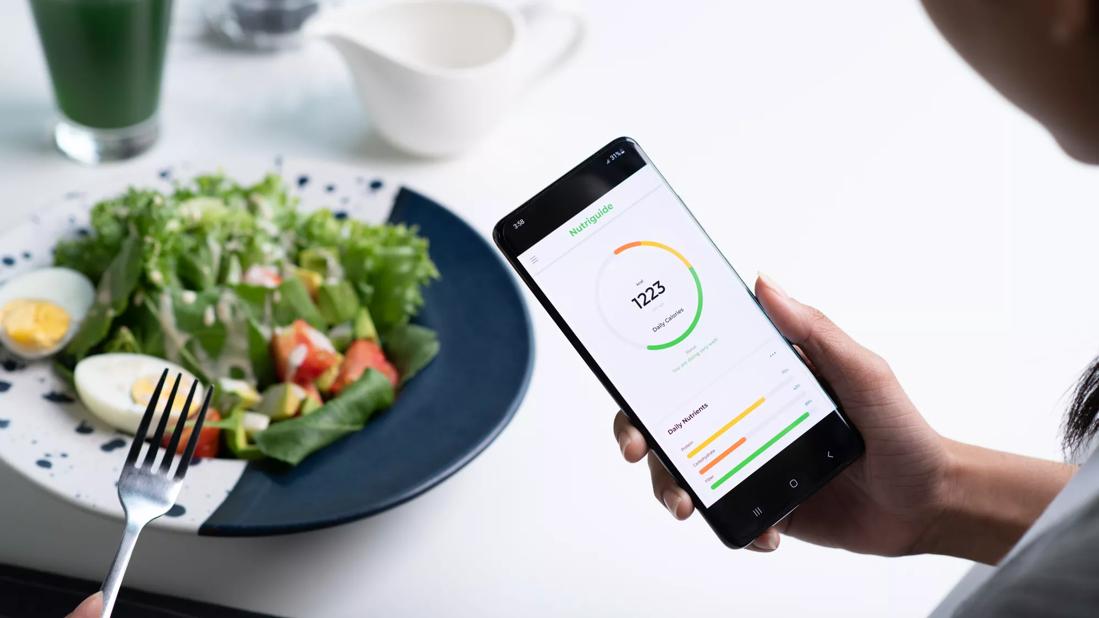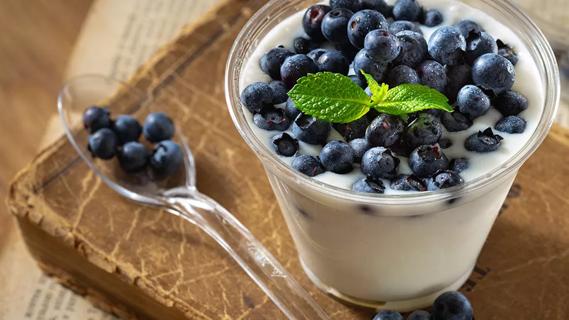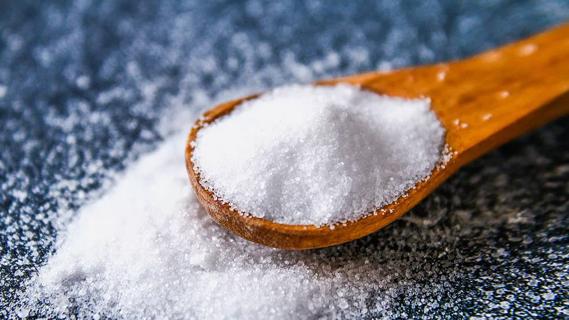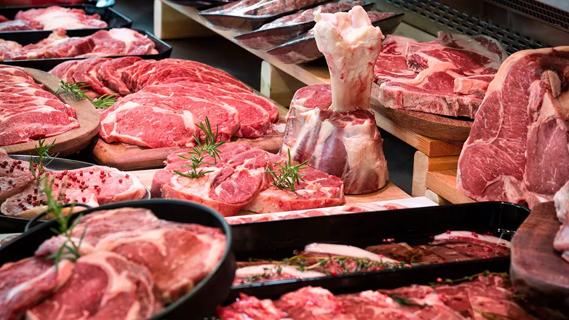It depends on factors like your age, activity level and if you want to maintain, lose or gain weight

How many calories should I eat a day?
Cleveland Clinic is a non-profit academic medical center. Advertising on our site helps support our mission. We do not endorse non-Cleveland Clinic products or services. Policy
It’s a question many of us ask. And unfortunately, the right answer isn’t, “As many as you want!”
But figuring out your ideal calorie count can be almost as hard as turning down a 500-calorie slice of chocolate cake.
Many factors go into determining your calorie needs. Your age, weight, gender/sex, height and activity level all play a role. According to dietary guidelines in the United States, adults 21 years old and older should consume anywhere between 1,600 and 3,000 calories per day.
So, what do you need to know to strike a healthy balance? Registered dietitian Julia Zumpano, RD, LD, helps us do the math.
Whether you want to gain weight, lose it or find the perfect Goldilocks balance to stay exactly where you are, calories matter.
A calorie is a measure of the energy in food. To maintain your weight, energy in must equal energy out (average calories consumed per day vs. average calories burned per day).
Eat fewer calories than you burn, and you’ll lose weight. But if you consume more calories than you need, your body stores that energy for later (in the form of extra padding on your hips and around your middle).
Everybody’s daily calorie needs are different, which can make it hard to figure out the magic number. In general, men and people assigned male at birth (AMAB) need more calories than women and people assigned female at birth (AFAB).
Active people need more than those who have desk jobs. And younger people need more than older people, whose metabolisms slow down as they age.
These factors can impact your caloric intake:
Your basal metabolic rate (BMR) is the minimum calories per day your body needs to function while resting. Your BMR contains about 60% to 70% of the energy used by your body — and this number is unique to you. And that number can change if you’re trying to lose, gain or maintain your body weight.
So, how do you calculate your BMR? If you wear a smartwatch to track your fitness, BMR is used to come up with your daily goals. You can also find BMR calculators online.
“BMR is an essential starting point for calculating calories, although is it an estimate and is not 100% accurate,” clarifies Zumpano. “The most accurate means of measuring your BMR is direct calorimetry or indirect calorimetry, although those methods are not commonly used or available, therefore the Mifflin St-Joer equation is best to use and is only about 10% off. Most health professionals, apps and online calorie calculators use this equation.”
And while it’s a good idea to know how many calories you need each day, it also matters what kind of calories you’re consuming. You may have heard of “empty calories.” These can be found in junk foods, sugar-sweetened beverages and processed foods — items that typically contain added sugar, trans fat and an unnecessary amount of fat and calories.
While you might get a boost of energy from consuming those foods, they tend to be void of nutrition — specifically fiber, minerals and vitamins. Those empty calories won’t satisfy you and are designed to make you want more, leading to food cravings and overconsumption. You may even feel tired or fatigued. These foods also promote inflammation and gut dysbiosis, which can both inhibit weight loss and eventually lead to disease.
Instead, make sure you focus on eating a well-balanced diet full of fruits and vegetables, lean meats, whole grains, nuts and seeds.
“Think about the foods you often crave — an apple or Brussels sprouts often don’t come to mind,” notes Zumpano. “Empty calorie foods cause craving and overconsumption leading to excess calories and poor nutrition intake.”
So, how many average calories per day should you aim for? The U.S. Department of Agriculture (USDA) shares its recommended calories per day:
| Age | Calories: sedentary | Calories: moderately active | Calories: active |
|---|---|---|---|
| 21–25 | 2,000 | 2,200 | 2,400 |
| 26–30 | 1,800 | 2,000 | 2,400 |
| 31–50 | 1,800 | 2,000 | 2,200 |
| 51–60 | 1,600 | 1,800 | 2,200 |
| 61+ | 1,600 | 1,800 | 2,000 |
| Age | |||
| 21–25 | |||
| Calories: sedentary | |||
| 2,000 | |||
| Calories: moderately active | |||
| 2,200 | |||
| Calories: active | |||
| 2,400 | |||
| 26–30 | |||
| Calories: sedentary | |||
| 1,800 | |||
| Calories: moderately active | |||
| 2,000 | |||
| Calories: active | |||
| 2,400 | |||
| 31–50 | |||
| Calories: sedentary | |||
| 1,800 | |||
| Calories: moderately active | |||
| 2,000 | |||
| Calories: active | |||
| 2,200 | |||
| 51–60 | |||
| Calories: sedentary | |||
| 1,600 | |||
| Calories: moderately active | |||
| 1,800 | |||
| Calories: active | |||
| 2,200 | |||
| 61+ | |||
| Calories: sedentary | |||
| 1,600 | |||
| Calories: moderately active | |||
| 1,800 | |||
| Calories: active | |||
| 2,000 |
Source: Dietary Guidelines for Americans 2020-2025, Office of Disease Prevention and Health Promotion).
| Age | Calories: sedentary | Calories: moderately active | Calories: active |
|---|---|---|---|
| 21–25 | 2,400 | 2,800 | 3,000 |
| 26–35 | 2,400 | 2,600 | 3,000 |
| 36–40 | 2,400 | 2,600 | 2,800 |
| 41–45 | 2,200 | 2,600 | 2,800 |
| 46–55 | 2,200 | 2,400 | 2,800 |
| 56–60 | 2,200 | 2,400 | 2,600 |
| 61–65 | 2,000 | 2,400 | 2,600 |
| 66–75 | 2,000 | 2,200 | 2,600 |
| 76+ | 2,000 | 2,200 | 2,400 |
| Age | |||
| 21–25 | |||
| Calories: sedentary | |||
| 2,400 | |||
| Calories: moderately active | |||
| 2,800 | |||
| Calories: active | |||
| 3,000 | |||
| 26–35 | |||
| Calories: sedentary | |||
| 2,400 | |||
| Calories: moderately active | |||
| 2,600 | |||
| Calories: active | |||
| 3,000 | |||
| 36–40 | |||
| Calories: sedentary | |||
| 2,400 | |||
| Calories: moderately active | |||
| 2,600 | |||
| Calories: active | |||
| 2,800 | |||
| 41–45 | |||
| Calories: sedentary | |||
| 2,200 | |||
| Calories: moderately active | |||
| 2,600 | |||
| Calories: active | |||
| 2,800 | |||
| 46–55 | |||
| Calories: sedentary | |||
| 2,200 | |||
| Calories: moderately active | |||
| 2,400 | |||
| Calories: active | |||
| 2,800 | |||
| 56–60 | |||
| Calories: sedentary | |||
| 2,200 | |||
| Calories: moderately active | |||
| 2,400 | |||
| Calories: active | |||
| 2,600 | |||
| 61–65 | |||
| Calories: sedentary | |||
| 2,000 | |||
| Calories: moderately active | |||
| 2,400 | |||
| Calories: active | |||
| 2,600 | |||
| 66–75 | |||
| Calories: sedentary | |||
| 2,000 | |||
| Calories: moderately active | |||
| 2,200 | |||
| Calories: active | |||
| 2,600 | |||
| 76+ | |||
| Calories: sedentary | |||
| 2,000 | |||
| Calories: moderately active | |||
| 2,200 | |||
| Calories: active | |||
| 2,400 |
Source: Dietary Guidelines for Americans 2020-2025, Office of Disease Prevention and Health Promotion).
“Keep in mind, these calorie recommendations are for people who are at a normal weight,” states Zumpano. “If your weight is above the normal range for your height and your goal is weight loss, you need to consume less. A deficit of 500 calories can provide a weight loss of 1 pound per week.”
Depending on what your goals are, here are some healthy ways you can maintain, add or lose weight.
If your goal is to gain weight, don’t just focus on eating more. You want to make sure you add weight in a healthy way.
Opt for high-calorie nutrient-dense foods like meat, fatty fish, eggs, full-fat yogurt, whole grains, nuts and oils. You should also consider eating more often and looking for ways to add extra calories to each meal. For example, adding nuts or seeds to your yogurt, oatmeal or cereal.
“Don’t forget to include more liquid calories that won’t leave you feeling too full by the next meal,” advises Zumpano. “Opt for high-calorie beverages like whole milk, cream, 100% fruit and vegetable juices, smoothies and high-calorie nutrition shakes.”
If you’re trying to lose weight, you might be tempted to radically slash your calorie count to reach your goals.
But proceed with caution, Zumpano says. If you eat fewer than 1,200 calories per day to lose weight, it’s tough to get all of the nutrients you need to stay healthy. And eating too little can work against you — it can halt weight loss and even lead to weight gain due to being in starvation mode leading to fat storage.
What’s more, is that extreme calorie restriction might backfire.
You may be wondering: How many calories do I burn a day? On an average day, you may burn anywhere from 1,300 to 2,000 calories without any physical activity. You can add some extra exercise to burn more calories.
“Regular exercise not only burns calories, which means you don’t need to cut back as much, but it also builds muscle which uses up more calories, therefore increasing your BMR,” explains Zumpano. “This allows for a more balanced diet and the ability to get all the nutrients you need.”
If your goal is to maintain your current weight, Zumpano says you need to balance how many calories you eat or drink with the same amount of calories you burn through physical activity and exercise.
“Weight maintenance can be tricky because your caloric needs change all the time,” she says. “Factors such as age, increased or decreased muscle mass, change in activity, health conditions and medications can influence your weight without you even realizing it.”
How many calories should I eat in a day? If you’ve pondered this question, it’s a good idea to have a sense of your daily calorie needs and to be aware of how the calories in your favorite foods add up. Those numbers can help guide your decisions about what to eat and what to save for another day.
But if numbers aren’t your thing, never fear. You don’t have to obsess over calories to stay healthy.
“Plenty of people lose weight not by counting calories, but by focusing on the quality of the foods they consume and on portion control,” says Zumpano.
If you’re a person who likes to track and measure things, you could benefit from determining exactly how many calories you need.
Digital apps and online calorie calculators can help, Zumpano says. But because it can be complicated (are you really active, pretty active or just kind of active?), she recommends seeing a dietitian to get an expert’s opinion.
They can take factors like your age, sex, medications, lifestyle, weight history, family history and activity level into account and provide you with information on how to tailor your meals and exercise.
Whether you’re trying to lose, gain or maintain your weight, figuring out how many calories will help you achieve your goal is key.
It’s important to understand how many calories you’re consuming compared to how many calories your body needs. And the source of where those calories are coming from is important, too.
“For example, consuming 200 calories from 16 ounces of soda is metabolized differently than 200 calories from 1 ounce of nuts,” says Zumpano.
“You’re gaining vitamins, minerals, fiber, protein and healthy fats from the nuts and no nutritional benefits from the soda. Not to mention that the refined sugars and artificial ingredients in the soda can lead to inflammation and increased blood sugars, which will eventually lead to health problems.”
Learn more about our editorial process.

Both are needed for a healthy body

Wrapped or sandwiched, try to choose fillings and condiments that are minimally processed, low in saturated fat and high in fiber

Genetics, metabolism and hormonal fluctuations can all make weight loss more difficult

Snacking can bring benefits with healthy food choices and planning

Excess salt and sodium consumption is a worldwide health concern

Calorie reduction can do more than just help you lose weight — it can also lower age-related inflammation

It has nutrients your body needs, but it also comes with some serious health risks

Despite what you may have heard, pork is actually red meat (and it comes with the same risks as other red meats)

Your metabolism may torch 1,300 to 2,000 calories daily with no activity

A gentle touch in all the right places may help drain your sinuses